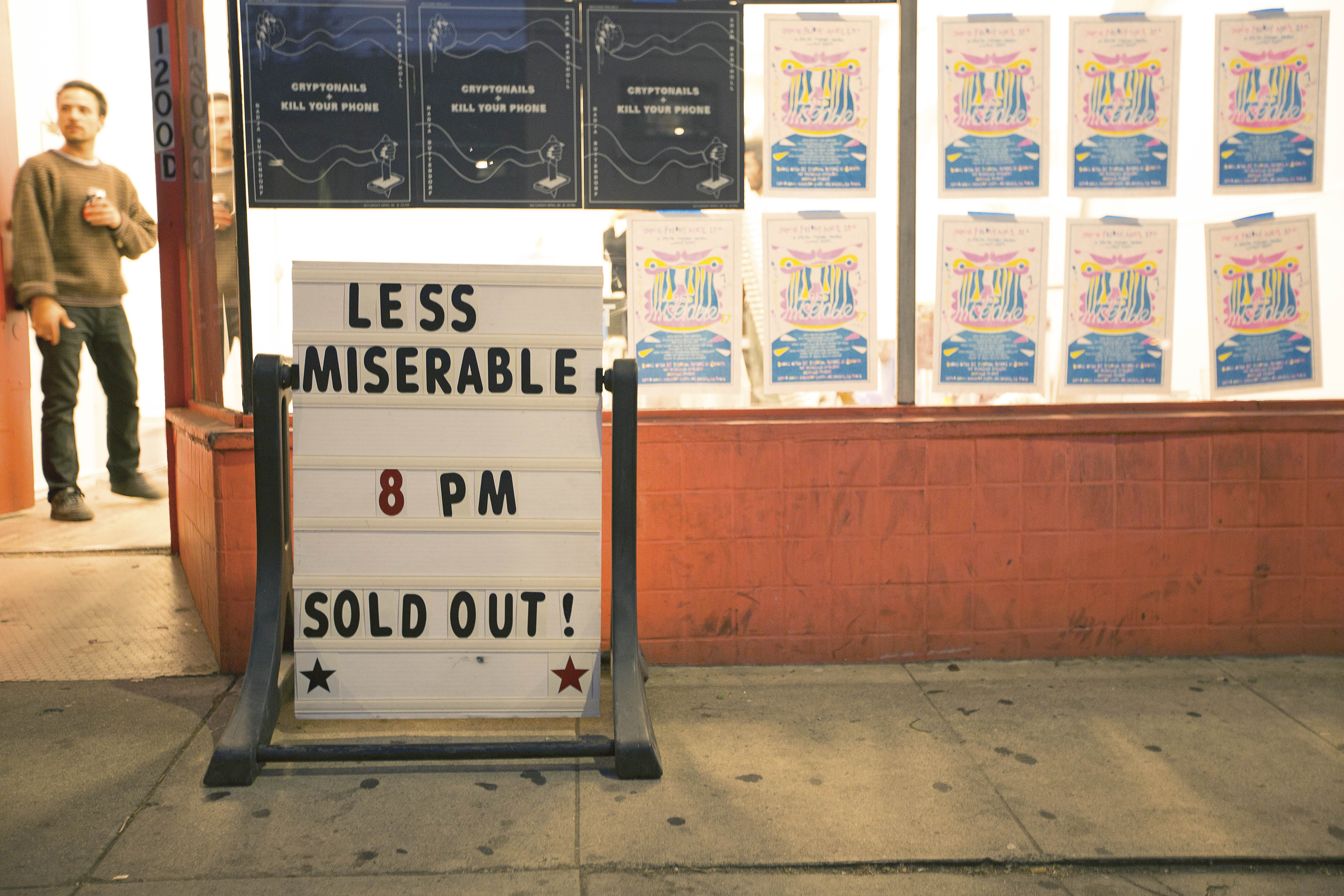
The exterior is painted a dull red color. The outside walls, chipping, are holding large windows together. The building is more window than wall. If one were to walk by the storefront on a regular day, they might think an abandoned building was situated between a coffee shop and a film studio. But on certain days, this dusty storefront can transform into a jungle or a dance studio.
Machine Project is a non-profit organization that brings together art, technology and science to educate and unite the residents of Los Angeles.
“The vision was to create a space that wasn’t just one genre. We didn’t just want to create poetry. I wanted to have a place where all different kinds of ways that people think about the world could take place in,” Executive The exterior is painted a dull red color. The outside walls, chipping, are holding large windows together. The building is more window than wall. If one were to walk by the storefront on a regular day, they might think an abandoned building was situated between a coffee shop and a film studio. But on certain days, this dusty storefront can transform into a jungle or a dance studio.
Machine Project is a non-profit organization that brings together art, technology and science to educate and unite the residents of Los Angeles.
“The vision was to create a space that wasn’t just one genre. We didn’t just want to create poetry. I wanted to have a place where all different kinds of ways that people think about the world could take place in,” Executive Director Mark Allen says. “The idea is very simple: a place for humans to come together.”
According to Associate Curator Lucas Wrench, Machine Project began as an art and science based institution, but has since become more focused on the artistic aspects of things.
“I think it’s pigeon-holed to say we are art and science based,” Wrench says. “I think we started out much more as an art and science sort of makerspace, but now our focus is more on experimental performance art. Questions of tecnology and science are fascinating and we do a lot around that, but I think, primarily, we are approaching that from an artistic point of view; an artist-first perspective.”
Machine Project has been operating in Echo Park since 2003. Allen simply walked down Alvarado Street. one day, saw the vacant space and purchased it. The location proved to be successful for their projects. He says that the area he bought the space in has always been pedestrian heavy.
“There are always people walking around the front and we get a great flux of people,” Allen says. “This neighborhood is very diverse and we get a lot of different people coming to our shows. Part of the storefront is having the big windows, which allows people to walk by, look in and come inside.”
Unlike the nearby NoHo Arts District, Echo Park is not well known for their artistic
scene. Regardless, Wrench says there are a lot of creative minds and a lot of interest in art and performance.
“Echo Park is not considered a big center
for art,” Wrench says. “Sure, some galleries opened up a few years back, but I think it’s nice to be away from that. We can do our own thing here, and not have to stay in dialogue with what’s happening with the rest of the city.”
Throughout the years, Machine Project has partnered with different organizations and independent artists to produce on and off site events, projects and performances.
“The scientists, artists and engineers who partner with us are the people who have an idea, but do not have the venue to present it,” Allen says. “We also collaborate with museums and parks. It’s usually organizations interested in experimenting, but who wish to do it externally.”
As an independent and informal organization, Machine Project has the freedom to focus its projects and partnerships on the strange and alternative forms of artistic expression.
“We sort of get to masquerade as a serious institution when really it’s loose and a bit disorganized, for the most part,” Wrench says. “I think we have this ability to try things out with a certain level of visibility that hopefully has some influence on more formal institutions, and then that creates leeway for them to do more experimental work as well.”
According to Wrench, Machine Project is valuable to the arts community because of its uniqueness. Locally and outside the county, Machine Project has recognition and respect for its programming. It’s a known place to go to if people want to see interesting projects, he says.
Machine Project partnered with George Chen, who had previously been working
on experimental comedy shows in the Bay Area. He recently moved to Los Angeles and was connected with Machine Project through a mutual friend.
“I heard about Machine Project for years from different people in the art scene. It has a good reputation in the art world,” Chen says. “It’s very established because I know a lot of people in the Bay Area and throughout California know about it. It’s a good space for experimental performances. It just had a very familiar feeling.”
Chen organized “Less Miserable: A Mystery Theater Comedy Show” on April 29. The show included stand-up and musical performances from comedians based in the Bay and the L.A. area.
Machine Project hosts live performances in its small basement theater. However, these comedy and drama shows are not your run-of-the-mill performances.
“Our tastes are kind of eccentric. It’s looking for things that are less obvious in the culture,” Allen says. “We are a complex organization that does many different things, so how do we communicate that to the world?
“We like to experience the strange, show that strangeness to the community and make it our normal.”



